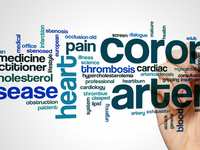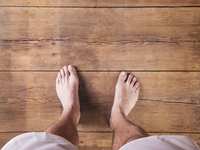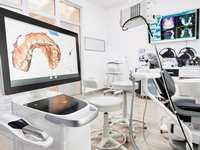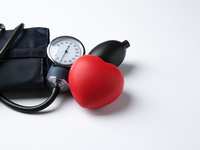- Categories :
- More
Houston’s Rental Boom: What Every Renter Should Know to Stay Safe and Healthy at Home

Houston is growing fast – and so is its rental market. More than 53,000 people moved to Harris County in 2023, bringing the population close to 5 million. With that growth, apartment construction in Houston has surged alongside its population, placing it among the top cities for new rentals.
More than half of Houston households now rent, making the condition of those homes more important than ever. And with nearly 1 in 5 rental properties in Harris County rated “below average” by the local appraisal district in 2021, renters must be aware of hidden hazards.
Dr. Phillip Lamptey, medical director for Memorial Hermann-GoHealth Urgent Care and his team treat people with rental-related illnesses and injuries. Here are the simple, proactive tips Dr. Lamptey shares with his patients to help them stay safe, healthy in their rental home:
Falls on Stairs: Falls are one of the most common—and most serious—home injuries. In fact, falls are the leading cause of preventable injury-related deaths in homes and communities across the U.S., according to the National Safety Council. To help prevent falls:
-
Keep stairways clear of clutter, cords, and rugs.
-
Make sure stairwells are well-lit—replace bulbs as needed.
-
Check that handrails are secure. If they’re loose or missing, alert your landlord.
-
Use non-slip treads or grip tape if stairs are slick or worn.
Contact your landlord if you notice broken steps, poor lighting, or damaged railings. If a fall causes pain, dizziness, or injury, seek medical attention.
Lead Paint: Homes and apartments built before 1978 may still contain lead-based paint, which can be hazardous if it chips, peels, or creates dust. Lead exposure is especially dangerous for children and pregnant women.
Here’s how renters can reduce risk:
-
Look for signs of deterioration like peeling or chipping paint, especially around windows, doors, or baseboards.
-
Avoid dry sanding or scraping painted surfaces that may contain lead.
-
Clean floors and windowsills regularly to reduce lead dust.
-
Report any paint damage to your landlord.
If you live in a pre-1978 building and suspect lead-based paint, ask your landlord for documentation or lead inspection records. By law, landlords must disclose known lead hazards. You can also find more information from the EPA’s Lead-Safe Housing Rule.
Mold: Indoor mold is common where there is poor ventilation and moisture. Most species of mold are harmless, but some are toxic and pose health risks. Toxic mold can trigger symptoms of mold poisoning, including fatigue, respiratory issues, brain fog, and headaches. Black mold, a specific kind of toxic mold, can cause sneezing, coughing, congestion and eye irritation. Several types of mold can worsen asthma systems.
Learn how to prevent mold and what to do if you find it in your rental from the Texas Department of Licensing & Regulation. Contact a healthcare provider if you think you may have symptoms of mold exposure.
Smoke Alarms: Smoke alarms save lives. Each year, more than 2,000 people die because of unintentional home fires; the bulk of these deaths occur in homes with no smoke alarm or alarms that don’t work. A smoke alarm’s warning can cut the risk of dying from a fire in your home by half, according to the Center for Public Safety.
You should regularly inspect and test smoke detectors and replace batteries to ensure they work.
“The first step is to make sure your smoke alarm works,” said Dr. Lamptey. “It is easy to push the test button but take a second to inspect them too. Look for signs of damage, such as cracks or discoloration. If the alarm is going off without cause, doesn’t go off when there is smoke nearby, or is more than 10 years old, ask for it to be tested or replaced. It really can save your life.”
Carbon Monoxide: Carbon Monoxide detectors are also a great idea.
Carbon monoxide is an odorless gas commonly caused by gas appliances, wood-burning fireplaces, and idling cars that are not properly ventilated. It can build up indoors and can cause serious illness or death. According to the CDC, more than 400 Americans die each year from unintentional carbon monoxide poisoning not linked to fires, and more than 20,000 people visit the emergency department annually for the same reason.
Carbon monoxide buildup can be caused by poor ventilation, faulty appliances, improper generator use, and more. Signs of carbon monoxide poisoning include headache, dizziness, weakness, vomiting, chest pain, and confusion.
Pests: Pest control is critical to your health and safety. You should review your lease and local laws to determine what services the landlord is required to provide to you. Here are a few signs you have unwanted guests that may impact your health.
-
Bedbugs are tiny insects often found in mattresses and furniture and can spread quickly among adjoining rental units. The first sign is often clusters of tiny, red bites. Other signs include tiny yellow eggs along the seams of mattresses or small droplets of blood on bedding. It’s important to treat a bedbug infestation immediately.
-
Rodents, such as mice, rats, or chipmunks, can spread diseases to humans. They also can carry fleas or ticks that can attach to humans. Rodent droppings or gnaw marks are common signs of a rodent presence. Inspect your home regularly for signs of rodents. To deter rodents from moving in, put away food and water, and keep your home tidy. If you see signs of rodents, you should immediately seek pest control treatment.
-
Cockroaches are another common pest that pose a threat to your health, particularly for people with asthma. Cockroach debris can worsen asthma symptoms for many people. Cockroaches can exist in any home with food or water, but general maintenance and cleaning can help reduce your risk.
"Feeling safe and healthy in your home is essential," said Dr. Lamptey. "Renting comes with unique considerations, from ensuring smoke alarms work to watching for mold or pests that could impact your health. Taking small but important steps like testing alarms and reporting maintenance issues can help keep you and your loved ones safe."
Memorial Hermann-GoHealth offers treatment for non-life-threatening illnesses and injuries, on-site X-ray services and diagnostic testing. They are open 365 days a year, including holidays. Patients seeking care can be seen quickly and easily by either walking into any Memorial Hermann-GoHealth center or through its online "save a spot” tool, which allows them to secure their spot in line, check in and complete registration before arrival. For more information, visit gohealthuc.com/memorialhermann.










